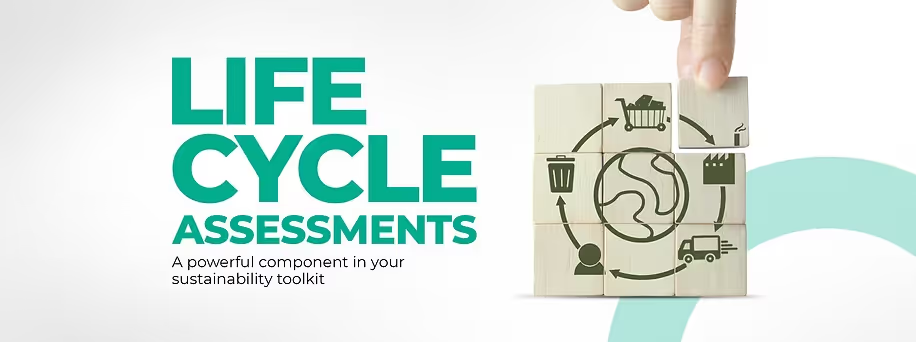
Solutions
Carbon Management
ESG Intelligence
Climate & Nature Risk
Data Registry
Beta
Sector
Get started, schedule a demo or request a free assessment!


StepChange Primer. Sidhant Pai, Chief Science Officer, StepChange Inc.
StepChange Primers provide brief overviews of important subjects in corporate sustainability.
Follow us to receive notifications on future content.
As businesses start responding to the increasing consumer, investor and regulatory demands that their products and services become ‘sustainable’, there is justifiable confusion as to how to go about this process. Life cycle assessments (LCAs) are an important piece of this puzzle. When used appropriately, they can be powerful tools in any organisation’s sustainability arsenal, providing a detailed framework for exploring, estimating and evaluating a variety of environmental (and sometimes social) impacts that are caused by a product/service (or material/process) throughout its lifespan.
At its core, an LCA breaks down a given product into its component processes and materials. This is done by defining a series of ‘life-cycle stages’ that form a linearised representation of the distinct stages in a product’s life span. The scope and specificity of these life cycle stages depend on the underlying system boundaries that define what portion of the life cycle to consider when conducting the analysis. For instance, a ‘cradle-to-gate’ analysis will often define the system boundary as spanning from the resource extraction stage to the point of sale, whereas a ‘cradle-to-grave’ analysis will extend the boundary to include end-of-life treatments. Once the representative processes and materials are defined, the impact of each life cycle stage is estimated by defining an impact assessment methodology and shortlisting key impact metrics using life cycle inventories to calculate the relative impacts.
Businesses are increasingly relying on LCAs to:
While LCAs can be powerful tools for corporate decision-making, they suffer from a few important shortcomings:
While numerous challenges exist, LCAs are highly under-appreciated tools to conduct science-based sustainability assessments and inform targeted corporate action. A number of companies will turn to LCA-based methods over the next decade to inform their sustainability strategies, making it an exciting and impactful space to innovate within.
StepChange is a climate-tech startup that helps companies and brands accelerate their sustainability journey and transition to NetZero. Learn how we may be able to help your organisation through our website, or simply follow us on LinkedIn to stay tuned!
To share this article, use the social icons below:

.svg)